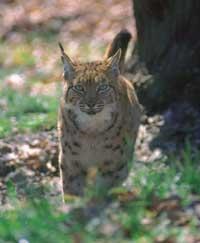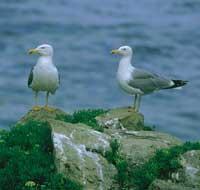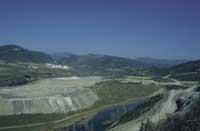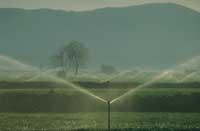Summary Basque Fauna
Local fauna richness

This small territory has a great variability in the physical environment (orography, climate, vegetation, etc. ). In fact, in just a few kilometers it is difficult to find a territory with ecosystems so diverse that they make faunistic diversity very large.
In terms of vertebrates, endemisms have not been described in the Basque Country (species that only live in this territory). In this sense, there are no other world heritages, but to measure somehow the wealth, we can analyze the number of species of native fauna: in our territory we can find 26 freshwater fish and many more sea fish, 17 amphibians, 26 reptiles, 190 species of birds and about 70 species of mammals. Although this number may vary according to the criteria (species that are not native or considered almost missing, for example, as they are introduced or not), in any case it can be affirmed that it is high.
As for invertebrates, there are thousands of species and although some groups have not yet been studied in depth, a lot of endemic species has already been described. For example, in the group of serene and earth rodents, about 14 endemisms have been described in our territory, and this last data indicates that we have a great wealth.
Main risks of the fauna today

Among so many species, of course, we can find all kinds of situations. Some are very scarce, others more than ever, you even have to lose forever, etc. Without going into the specific problems that each species can present, the main problems currently affecting Basque fauna in general are:
First, the loss of habitat or residence. Man began to change this territory long ago, but in the last century, coinciding with the rise of the population and the development of technology, the medium has changed as never before. The new urbanization, the road, the reservoir, the port, etc., has become easier than ever at present and the alteration of the environment is usually to the detriment of the animals that lived.
In addition to losing habitat, in many cases its quality has worsened, being one of the examples the pollution. The evolution of rivers and streams in this century has been, for example, lamentable. Where older people from any village caught crabs, salmon, or stairs, today any type of disease can be treated with water. Likewise, the chemicals of the agricultural lands, such as pesticides, herbicides, etc., kill not only the animals to kill, but also many others who are beneficial and cause great damage. In the agricultural activities and intensive livestock that we currently have, many products of this type are used, seeking in general a great production of few species by the homogenization of the environment.

The direct slaughter of animals is also a problem to take into account. Hunting and fishing, for example, if not planned well, can be very harmful. Unfortunately, for many years no adequate planning has been carried out and the situation of many species has worsened due to these actions. Although control and stricter legislation have been established in recent years, there are still too many people who do not respect it. On the other hand, in traffic accidents are killed not only people, but also thousands of animals every year. There are more and more roads and vehicles and, more and more, of course, this risk increases. In addition to direct death, the barrier effect generated by the media hinders the relationship between the different populations.
Finally, we cannot fail to mention the fashion of many sports that, along with the boom of leisure, has spread to all natural spaces. Getting up to the mountain climbing, jumping on paragliding, moving on mountain bike or 4x4 by car, of course, is great. But in recent times we are thousands of fans of this type of activities and we reach all corners, so it has not stopped a quiet place in our mountains. Therefore, we will have to try to manage in some way all these activities, as much as we want or not, so that these actions are compatible with the conservation of the environment.
In the future, what?

In general, the human being has modified the medium as he wanted and although species have been able to adapt, many others have retreated. We cannot forget the profound change that is taking place in our society in recent years. A few years ago throw garbage anywhere, dine the squirrel with potatoes, or die the owl, dissect and put it on the TV as it was “normal”, today not. I remember the times of my childhood filling the surroundings of the bakery of Leitza to make dinners of birds, or the money I earned by selling the boats and trout by hand. Today, however, few would do so and, in general, society begins to become aware and aware in some way.
Among other things, road engineers have to do an impact study, hunters and fishermen do not dare to do anything and children begin to learn that environmental education in school and conservation of nature must be taken care of. Time will tell what will happen in the future, but they all contribute to be optimistic. However, there are those who could say that at a time when environmental protection legislation is stricter than ever, and in which it seems that we care more than ever about ecology, the reduction is maintained. It may be so, but I am one of those who want to think that things will improve...





